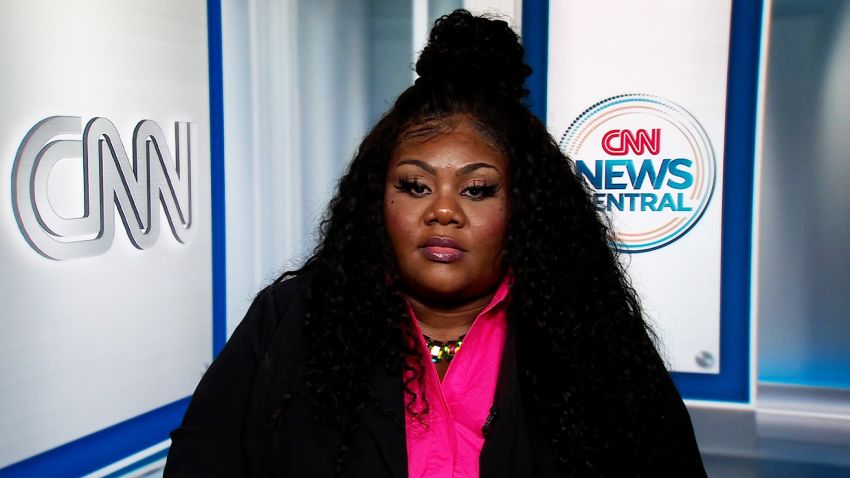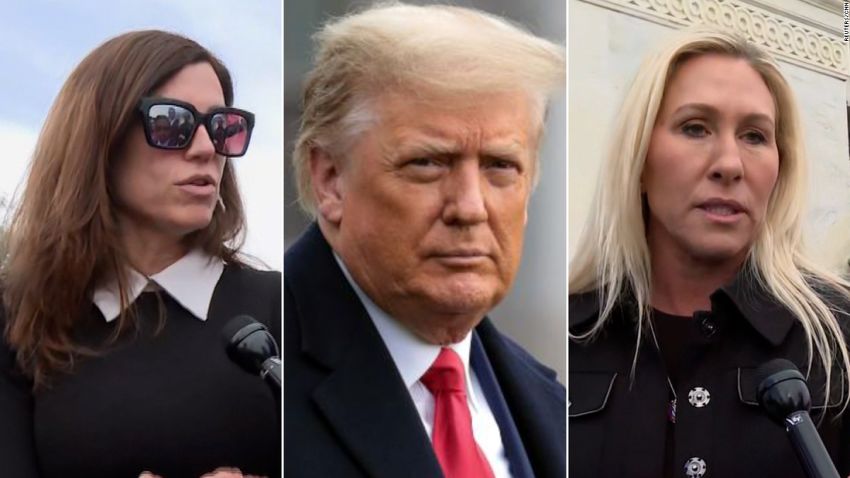The House voted with bipartisan, overwhelming fashion on Wednesday to pass a bill that could lead to a nationwide ban against TikTok, a major challenge to one of the world’s most popular social media apps.
The bill would prohibit TikTok from US app stores unless the social media platform — used by roughly 170 million Americans — is spun off from its Chinese parent company, ByteDance. It’s not yet clear what the future of the bill will be in the Senate. The House vote was 352 to 65, with 50 Democrats and 15 Republicans voting in opposition.
Lawmakers supportive of the bill have argued TikTok poses a national security threat because the Chinese government could use its intelligence laws against ByteDance, forcing it to hand over the data of US app users.
The push to pass the bill came up against headwinds from several different political directions: former President Donald Trump, who was once a proponent of banning the platform, has since equivocated on his position, while Democrats are facing pressure from young progressives among whom TikTok remains a preferred social media platform. TikTok creators and Beijing have responded angrily to the upcoming vote, with China’s foreign ministry calling it an “act of bullying.”
“The bill passed by the US House of Representatives puts the US on the opposite side of the principle of fair competition and international economic and trade rules,” Wang Wenbin, a spokesperson for China’s Foreign Ministry, said Thursday.
In a rare show of bipartisanship, the measure advanced unanimously out of the powerful House Energy and Commerce Committee, and President Joe Biden has said he would sign the bill if it makes it to his desk.
The bill would give ByteDance roughly five months to sell TikTok. If not divested by that time, it would be illegal for app store operators such as Apple and Google to make it available for download.
TikTok has called the legislation an attack on the constitutional right to freedom of expression for its users. It launched a call-to-action campaign within the app, urging users to call representatives in Washington to oppose the bill. Multiple congressional offices have said they’ve been flooded with calls.
Legislation heads to the Senate
In a statement on Wednesday’s vote, TikTok said its attention would now shift to the Senate, where the fate of the legislation is unclear.
“This process was secret and the bill was jammed through for one reason: it’s a ban,” a TikTok spokesperson said in a statement. “We are hopeful that the Senate will consider the facts, listen to their constituents, and realize the impact on the economy, 7 million small businesses, and the 170 million Americans who use our service.”
Senate Majority Leader Chuck Schumer issued a statement, remaining uncommitted to the next steps in the Senate.
“The Senate will review the legislation when it comes over from the House,” Schumer, a Democrat from New York.
Senate Intelligence Committee Chairman Mark Warner, a Virginia Democrat, and the panel’s top Republican, Marco Rubio of Florida, urged support for the House bill, citing the strong showing in Wednesday’s vote.
“We are united in our concern about the national security threat posed by TikTok – a platform with enormous power to influence and divide Americans whose parent company ByteDance remains legally required to do the bidding of the Chinese Communist Party,” the bipartisan pair said in their joint statement.

Trump pushes back on potential TikTok ban
When Trump was president, he supported calls to ban the app, but he appears to have now backed away from that stance, though his rhetoric has at times sent seemingly mixed messages.
In a post on Truth Social last week, Trump expressed opposition to a ban, arguing that if TikTok were out of the picture, Facebook would benefit as he attacked Facebook and Meta CEO Mark Zuckerberg as an “Enemy of the People.”
In a Monday interview with CNBC, Trump said it was a “tough decision” whether the US should ban TikTok and continued to argue that getting rid of it would benefit Facebook, adding that he thought, “Facebook has been very bad for our country.”
Trump said he thought TikTok posed a national security threat to the US but said, “You have that problem with Facebook and lots of other companies too,” and “There are a lot of people on TikTok that love it.”
“There’s, you know, a lot of good, and there’s a lot of bad with TikTok,” Trump said.
Lawmakers on both sides of the aisle who support the bill have argued that it is not a ban.
In recent comments to reporters, Wisconsin Republican Rep. Mike Gallagher, who chairs a House select committee on China, rejected characterizations of the bill as a TikTok ban.
“It’s not a ban,” he said. “It puts the choice squarely in the hands of TikTok to sever their relationship with the Chinese Communist Party. As long as ByteDance no longer owns the company, TikTok can continue to survive. … the basic ownership structure has to change.”
TikTok has pushed back on claims from lawmakers that the legislation would provide options for the app.
“This legislation has a predetermined outcome: a total ban of TikTok in the United States,” the company wrote in a post on X. “The government is attempting to strip 170 million Americans of their Constitutional right to free expression. This will damage millions of businesses, deny artists an audience, and destroy the livelihoods of countless creators across the country.”
TikTok’s CEO, Shou Chew, has attempted to schedule 11th-hour meetings with members of Congress. The company also sent letters to multiple House lawmakers on Monday accusing them of mischaracterizing TikTok’s call-to-action campaign, saying it is “offensive” for lawmakers to dismiss the views of constituents who have overwhelmed congressional offices with phone calls.
This story and headline have been updated with additional information.
CNN’s Lauren Fox, Kate Sullivan, Morgan Rimmer and Lauren Fox contributed.








